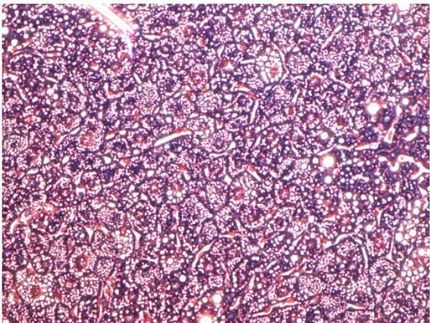New therapeutic approach identified for kidney disease associated with lupus
Investigators have identified a new disease mechanism and therapeutic approach for a type of advanced kidney disease that is a common cause of complications in patients with lupus. The study was led by investigators at Hospital for Special surgery and appears in Proceedings of the National Academy of Sciences.
"The standard treatment for lupus kidney disease is to block inflammation," said Lionel Ivashkiv, M.D., associate chief scientific officer at Hospital for Special Surgery in New York City. "This study suggests you might want to target the macrophages, a specific type of white blood cell involved in the disease."
For years, clinicians have known that kidney damage occurs in many patients with lupus, and they have known how the disease triggers the start of kidney disease. Little has been known, however, about one type of lupus kidney disease, proliferative crescentic disease that is associated with adverse outcomes and decreased survival. This type of kidney disease is characterized by abnormal proliferation (growth) of kidney cells that leads to irreversible damage to internal kidney structures that help filter waste and fluids from the blood. This advanced kidney disease leads to kidney failure and it is an important cause of the need for dialysis and transplantation in lupus.
Previous studies have suggested that type I interferons are implicated in promoting the autoimmunity associated with lupus. "We were interested in understanding whether these interferons might work directly on the kidney," Dr. Ivashkiv said. "There is a lot of evidence that the interferons work on the immune system and we wanted to know how interferons affect kidney disease."
To investigate, researchers used a mouse model of lupus. By increasing interferon production, they caused advanced kidney disease to occur in the mice rapidly. "The mice are a strain that will get nephritis over time, but we injected the mice at the very onset of the disease thus causing a very accelerated pattern, so that the mice have complete renal failure in two to four weeks," Dr. Ivashkiv said. They then examined the changes that occurred during the development of the advanced kidney disease by drawing blood samples from the mice, and analyzing their kidneys, and analyzing the macrophages to determine their type, among other experiments.
In the type of kidney disease they were investigating, it has long been known that epithelial cells proliferating out of control form a kind of crescent. These crescent cells compress the glomerulus, the basic filtration unit of the kidney, and prevent it from functioning.
In their experiments, the investigators found that the development of these crescents was associated with infiltrating kidney macrophages that produced growth factors, and the infiltration of these was spurred by interferon type I. They also found that the type of macrophages involved were not the most common type of inflammatory macrophages but so called "alternatively activated macrophages" that are involved in wound healing and induce the proliferation of cells. This is what causes the proliferation and crescentic lesions in the kidney disease.
"This study suggests a new drug target. If you could understand how to target the macrophages and inhibit them or the growth factors that they produce, this might be a different approach to therapy," Dr. Ivashkiv said. "This is an emerging area. Prior to this study, a role of macrophages had just been identified in lupus kidney disease, and this is the first study showing alternatively activated macrophages are involved in proliferative crescentic disease."
Most read news
Other news from the department science

Get the life science industry in your inbox
By submitting this form you agree that LUMITOS AG will send you the newsletter(s) selected above by email. Your data will not be passed on to third parties. Your data will be stored and processed in accordance with our data protection regulations. LUMITOS may contact you by email for the purpose of advertising or market and opinion surveys. You can revoke your consent at any time without giving reasons to LUMITOS AG, Ernst-Augustin-Str. 2, 12489 Berlin, Germany or by e-mail at revoke@lumitos.com with effect for the future. In addition, each email contains a link to unsubscribe from the corresponding newsletter.






















































